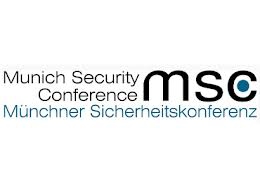 MUNICH, Germany, Feb. 3 (Xinhua) -- More than 400 global foreign and defence policy heavyweights have been discussing global hot-spot issues including the situation in Mali, Syria, and Iran's nuclear program at the 49th Munich Security Conference (MSC) starting from Friday.
MUNICH, Germany, Feb. 3 (Xinhua) -- More than 400 global foreign and defence policy heavyweights have been discussing global hot-spot issues including the situation in Mali, Syria, and Iran's nuclear program at the 49th Munich Security Conference (MSC) starting from Friday.The three-day event billed itself as being "dedicated to exchanging new ideas and promoting peaceful conflict solution, cooperation and dialogue in dealing with today's and future security challenges."
On Mali, plagued by conflicts between the government and Islamist rebels, Jean-Claude Mallet, an advisor for French Defence Minister, said his country intended to advance the political process as France and its African partners are able to "secure cities again" step by step.
"Military intervention can only make sense if it is in line with political process that is owned by Mali," said Mallet.
On Wednesday, France urged the Malian government to open talks with "legitimate representatives" of people in the north after its troops entered Kidal, the last major Malian city held by rebels.
In response, Malian interim President Dioncounda Traore said dialogue was open to the autonomy-seeking Tuareg National Movement for the Liberation of Azawad (MNLA) rebels, but talks with al-Qaida-linked Islamist groups were not possible.
For his part, German Defence Minister Thomas de Maiziere said "we are all perfectly aware: Military intervention only marks the beginning of a long process towards long-term conflict resolution."
Germany had sent transport planes to Mali to provide logistical support for troops from the Economic Community of West African States (ECOWAS) and had given millions of euros in humanitarian aid, but refused to send in troops.
On Iran, U.S. Vice President Joe Biden said at the conference on Saturday that the United States is prepared to hold direct talks with Iran when the Iranian leadership is "serious."
"We have made it clear at the outset that we would be prepared to meet bilaterally with the Iranian leadership," he said, adding that the United States does "not just prepare to do it for the exercise."
On Thursday, the U.S. government slammed Iran's plan to install new centrifuges at its main enrichment facility in Natanz, calling it "a further escalation" over its disputed nuclear program.
Iran informed the International Atomic Energy Agency (IAEA) of the plan last week as it was engaged in discussions about resuming nuclear talks with the so-called "P5+1", namely, the five permanent members of the United Nations Security Council -- Britain, China, France, Russia, the United States -- plus Germany.
As for Syria, head of Syria's main opposition coalition Moaz al-Khatib iterated Friday during late-night panel talks with joint UN-Arab League envoy Lakhdar Brahimi that he was ready to hold talks with Assad's regime with conditions such as releasing detainees and renewing documents of Syrians abroad.
The opposition leader, during the security meeting, also met with foreign ministers of Russia and Iran, as well as Biden, with a claimed aim to find a way to remove the regime with the least possible bloodshed and loss of life.
The broad-based opposition has long rejected any dialogue with the government before Assad is ousted, but al-Khatib's recent statement did not set Assad's departure as a precondition for dialogue.
Outside the conference venue, thousands of Germans took to the streets on Saturday, calling the meeting a source of war.
"The security conference is a sham, against which we are determined to demonstrate," said Johannes Jonic, spokesperson for an organization against war and racism. "The war in Munich" begins with this conference, he added.
MSC organizers stressed that the meeting was aimed at defusing conflicts. "Accusing us of inviting the defense industry to prepare for the next war is the height of stupidity," conference organizer Wolfgang Ischinger, a former German ambassador to London and Washington, said last week.
By Xinhua
The Iran Project is not responsible for the content of quoted articles.











